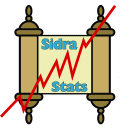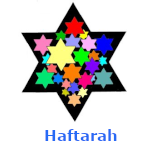BeHar
בְּהַר
Leviticus 25:1 – 26:2
The Sabbatical Year
HaShem told Moses at Mount Sinai to tell all of Israel:
When you come into the land that I am giving you, the land must rest, a Shabbat to me. For six years you may plant your fields and prune your vineyards, but in the seventh year, it is a rest for the land. What grows may be eaten by you.
The Jubilee
You shall count seven sabbatical years, that is seven times seven years (49 years), then on the 10th day of the seventh month you will make a proclamation and sanctify the fiftieth year. In this year all slaves will be freed and each person will return to his family.
If you sell your land to someone, you must only charge for the time that it will be used until the next Jubilee and then it will be returned. So, you must make it a fair price. Since the land is mine no land may be sold permanently.
Redemption of the Land
If someone is poor and has to sell his land, a relative can buy the land from the person to whom it was sold. If he does not have any money his land will be returned in the Jubilee year.
Houses in Walled Cities
When a person sells a house in a walled city they have one year to redeem it. If they do not, it becomes the property of the new owner and may be passed down through that family. It will not be released in the Jubilee. Houses in villages without walls will be considered open land and can be redeemed in the Jubilee.
In the Levites’ cities, the Levites have the right to the houses in their hereditary cities. If someone buys a home in their cities, it must be released in the Jubilee year.
Helping Others
When someone becomes impoverished and loses the ability to support themselves you must come to their aid. You may not charge interest on any money or food you give to them.
Haftarah Connection

Jeremiah 32.6-27
In this week’s Parsha we talk about the Shmitta (Sabbatical Year) and the Yovel (Jubilee). One of the major laws in the reading is that ownership of the land must be redeemed if sold to another person.
In this week’s Haftara, Jeremiah is told by HaShem to redeem his uncle’s field in Anasoth. He has to have faith in HaShem when the Chaldeans invade. As HaShem tells him nothing is hidden from him.
Sidra Stats

- Thirty-Second of 54 Sedras in the Torah
- Written on 99 lines in the Sefer Torah
- 57 P’sukim (verses)
- 737 words
- 2,817 letters
Next week’s Parashat: BeChuko-Thai


